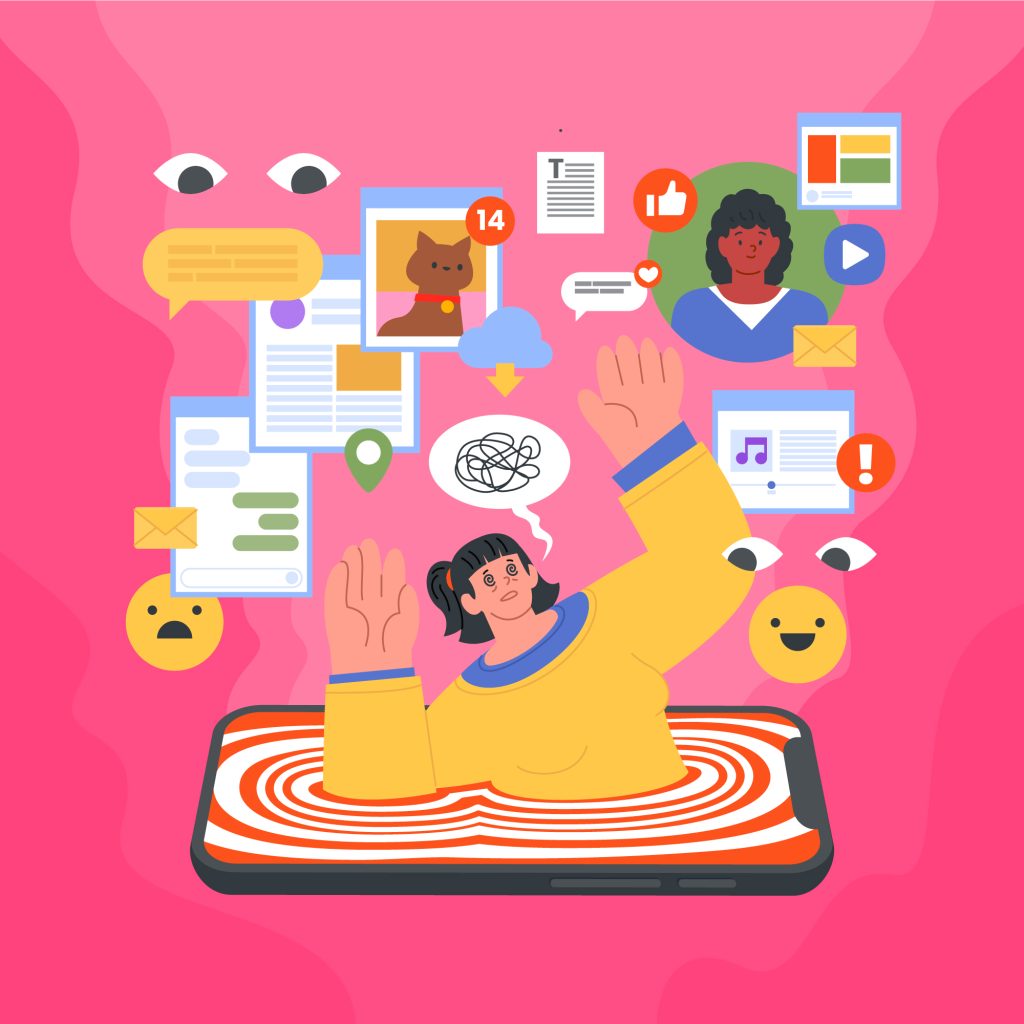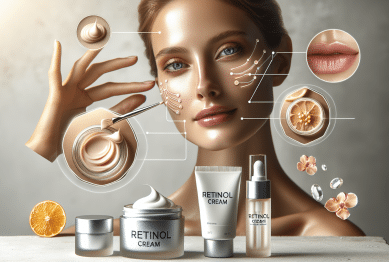Social media has revolutionized the way we communicate, share information, and connect with others. With billions of users across platforms like Facebook, Instagram, Twitter, and TikTok, social media has become an integral part of modern life. However, alongside its benefits, there is growing concern about the impact of social media on mental health. From increased anxiety and depression to feelings of inadequacy, the effects are becoming more pronounced, especially among younger users.
In this article, we will explore the complex relationship between social media use and mental health. We’ll dive into current research on the topic, discuss how social media can affect mental well-being, and offer practical tips for mitigating its negative effects while still enjoying its benefits.

How Social Media Affects Mental Health: The Key Issues
Recent studies have shown that social media use can significantly impact mental health, especially when it comes to issues like anxiety, depression, and self-esteem. The relationship between social media and mental health is complex, and while some aspects of social media can have positive effects, others contribute to harmful psychological outcomes.
1. The Rise of Anxiety and Depression
One of the most significant concerns surrounding social media is its connection to anxiety and depression. Research suggests that the more time individuals spend on social media, the more likely they are to experience feelings of anxiety and depression. A 2018 study published in the Journal of Social and Clinical Psychology found that limiting social media usage to 30 minutes per day led to significant reductions in anxiety, depression, and loneliness.
-
Why it happens: Social media can contribute to feelings of inadequacy and anxiety, especially when users compare their lives to the seemingly perfect lives of others. Constant exposure to idealized images and lifestyles creates unrealistic expectations, leading to feelings of inferiority.
2. The Impact of Social Comparison
Social comparison theory, introduced by psychologist Leon Festinger in the 1950s, explains how individuals determine their own social and personal worth based on how they compare to others. Social media platforms amplify this tendency, with users often posting their best moments and achievements.
-
How it affects you: When constantly comparing themselves to others, users may experience lower self-esteem and heightened feelings of inadequacy. Research has shown that frequent comparison on platforms like Instagram can increase feelings of sadness and dissatisfaction, especially among adolescents and young adults.
3. Fear of Missing Out (FOMO)
The term “FOMO” refers to the anxiety or fear of missing out on something that others are experiencing. It is particularly prominent on social media, where users can see what their friends, celebrities, or influencers are doing in real-time. This can lead to feelings of exclusion or missing out on social connections, especially when others appear to be having more exciting or fulfilling experiences.
-
Why it happens: The constant stream of updates on social media makes users feel like they’re not part of the “in crowd.” A study by the University of Pennsylvania found that limiting social media use significantly reduced feelings of FOMO, helping individuals feel more content with their lives.
4. Addiction and Sleep Disruption
Another key issue is the addictive nature of social media. The constant stream of notifications, updates, and content can trigger the brain’s reward system, making users want to stay connected and engaged. This addiction can disrupt sleep, leading to longer screen time late at night, which in turn can interfere with a person’s ability to get enough rest.
-
How it affects mental health: Sleep deprivation is closely linked to a variety of mental health problems, including increased stress, anxiety, and difficulty concentrating. Studies suggest that users who spend excessive time on social media at night are more likely to experience disrupted sleep patterns, leading to negative effects on both physical and mental well-being.
Positive Aspects of Social Media for Mental Health
While social media has its drawbacks, it’s important to recognize that it can also have positive effects on mental health. In recent years, there has been a growing movement to promote social media’s potential for connection, support, and even therapy.
1. Building Community and Support Networks
For many individuals, social media provides a sense of community, especially for those who might feel isolated in their offline lives. Support groups and online communities offer a place to discuss mental health struggles, share experiences, and receive encouragement from others going through similar challenges.
-
How it helps: Connecting with others who share similar interests or experiences can reduce feelings of loneliness and provide emotional support. For instance, many mental health advocacy groups have gained momentum on platforms like Instagram and Twitter, offering safe spaces for users to discuss their mental health without fear of judgment.
2. Access to Mental Health Resources
Social media platforms can also serve as a valuable resource for mental health education. Influencers, therapists, and organizations are increasingly using social media to raise awareness about mental health issues and provide tips for coping with stress, anxiety, and depression.
-
How it helps: Platforms like YouTube and TikTok host a wealth of mental health professionals offering guidance on everything from mindfulness techniques to cognitive-behavioral strategies for managing anxiety. Moreover, these resources are accessible to people who may not have access to in-person therapy or support.
3. Fostering Creativity and Self-Expression
For many people, social media offers an outlet for creativity and self-expression. Whether it’s through writing, photography, art, or video content, creating and sharing content online can boost self-esteem and provide a sense of accomplishment.
-
How it helps: Creative expression has been shown to have therapeutic effects on mental health, reducing stress and improving mood. Platforms like Instagram and Pinterest are particularly conducive to showcasing personal creativity and connecting with like-minded individuals.
How to Protect Your Mental Health on Social Media
Given the potential risks associated with social media use, it’s important to take steps to protect your mental health while still enjoying the benefits of these platforms. Here are some practical tips:
1. Set Boundaries for Screen Time
One of the best ways to manage social media’s impact on your mental health is by limiting your time spent on these platforms. Consider using built-in screen time trackers on your phone or download third-party apps that help manage your daily usage.
-
Tip: Try setting a daily limit on how much time you spend on social media. After you’ve hit the limit, avoid opening the app until the next day. This can help reduce feelings of stress and give your mind a break from the constant digital stimulation.
2. Curate Your Feed
Who you follow and what you engage with on social media can greatly influence your mental health. By curating your feed to include content that makes you feel positive and inspired, you can improve your experience online.
-
Tip: Follow accounts that focus on mental health, personal growth, or creative inspiration. Unfollow accounts that make you feel inferior, anxious, or upset.
3. Engage in Mindful Social Media Use
Instead of mindlessly scrolling, try to be intentional with your social media time. Set clear intentions before logging in, such as using it to connect with friends or learn something new, rather than getting lost in a sea of posts.
-
Tip: Practice mindfulness by taking a moment to assess how you feel before and after using social media. If you notice that certain activities or accounts affect your mood negatively, consider adjusting your habits accordingly.
4. Seek Professional Help if Needed
If you find that social media is affecting your mental health in a significant way, it may be helpful to seek professional support. Therapists and counselors can provide valuable insights into how to manage social media use and address the negative feelings it may evoke.
Conclusion
The impact of social media on mental health is undeniable. While social media platforms can contribute to anxiety, depression, and self-esteem issues, they also offer opportunities for connection, support, and personal growth. As we continue to navigate this digital age, it’s crucial to be mindful of how we engage with social media and take steps to protect our mental well-being.
By setting boundaries, curating your social media feed, and engaging mindfully, you can harness the positive aspects of social media while minimizing its negative effects. Ultimately, it’s about finding balance and making intentional choices that support your mental health.
Reference
- Risks: Anxiety, Depression, and Loneliness – https://www.news.iastate.edu
- Mechanisms Behind the Harm – https://health.ucdavis.edu
- Benefits: Connection, Support & Well-Being – https://bmcpsychology.biomedcentral.com









